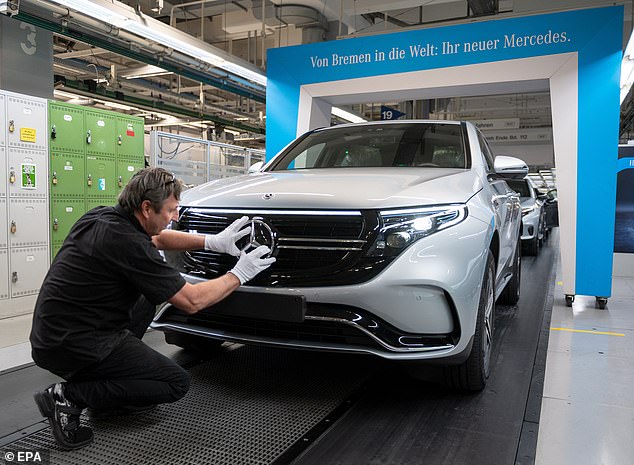Luxury Car Maker Makes Significant Production Shift to Alabama
Mercedes-Benz has announced plans to move production of one of its core segment vehicles to its plant in Tuscaloosa, Alabama by 2027. This decision marks a significant development in the automotive industry as it navigates the complexities of President Donald Trump’s 25 percent tariffs on foreign-made goods.
The German luxury carmaker’s move is seen as a potential victory for Trump’s protectionist trade policies, which aim to bolster US manufacturing by imposing steep tariffs on imported goods. While the company didn’t specify which model will be produced in Alabama, industry experts predict it could be the GLC, Mercedes-Benz’s best-selling vehicle in the US market.

The GLC, a compact SUV currently manufactured in Bremen, Germany, has seen significant sales growth in the US, with 64,163 units sold in 2024 – a 58 percent increase from the previous year. The Alabama plant, which has been operational since 1997, is likely to become a crucial hub for Mercedes-Benz’s US market supply.
Impact on US Manufacturing and Trade
This production shift reflects the ongoing adjustments in the automotive industry in response to changing trade policies and tariff structures. General Motors’ CEO, Mary Barra, recently stated that tariffs could cost her company between $4 billion and $5 billion annually. Other manufacturers, such as Ford, Honda, and Hyundai, are also reassessing their production strategies in light of the current trade environment.

Sten Ola Källenius, CEO of Mercedes-Benz, has been actively reviewing the company’s production portfolio in response to the evolving trade landscape. The decision to move production to Alabama is part of the company’s ‘local-for-local’ strategy, aimed at optimizing its production network and maintaining competitiveness in a fluctuating market.
As the automotive industry continues to adapt to the new trade realities, the full impact of Trump’s tariffs on manufacturers and consumers remains to be seen. However, Mercedes-Benz’s move to Alabama represents a significant step in the ongoing restructuring of the industry in response to changing global trade dynamics.



